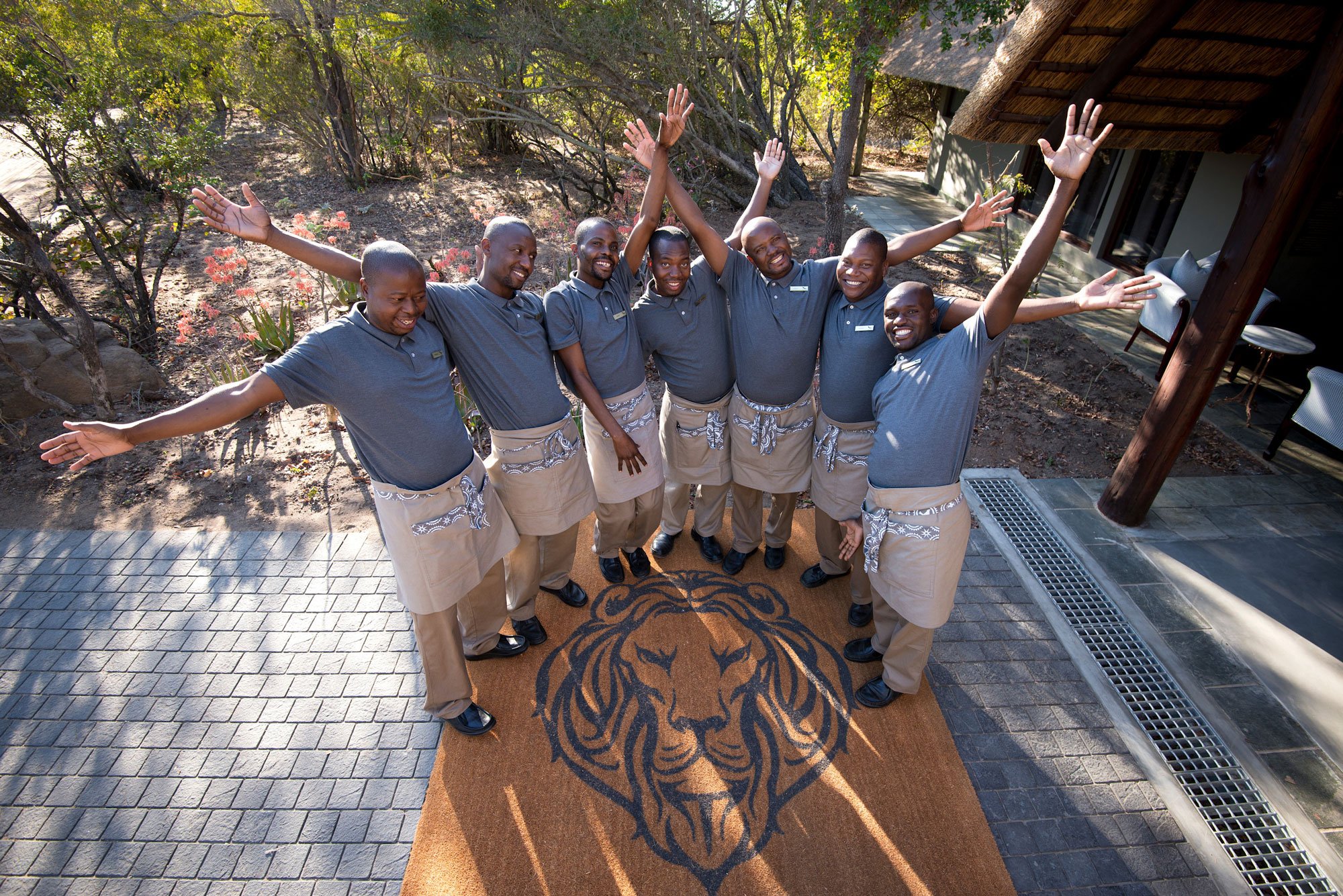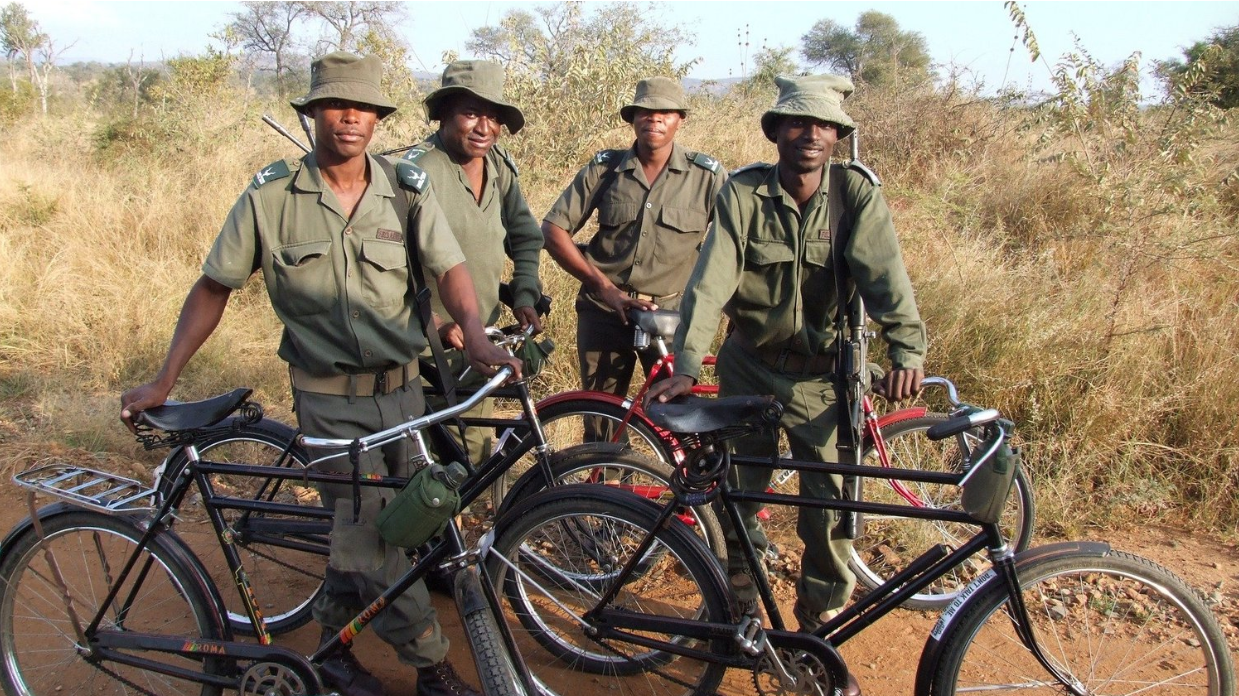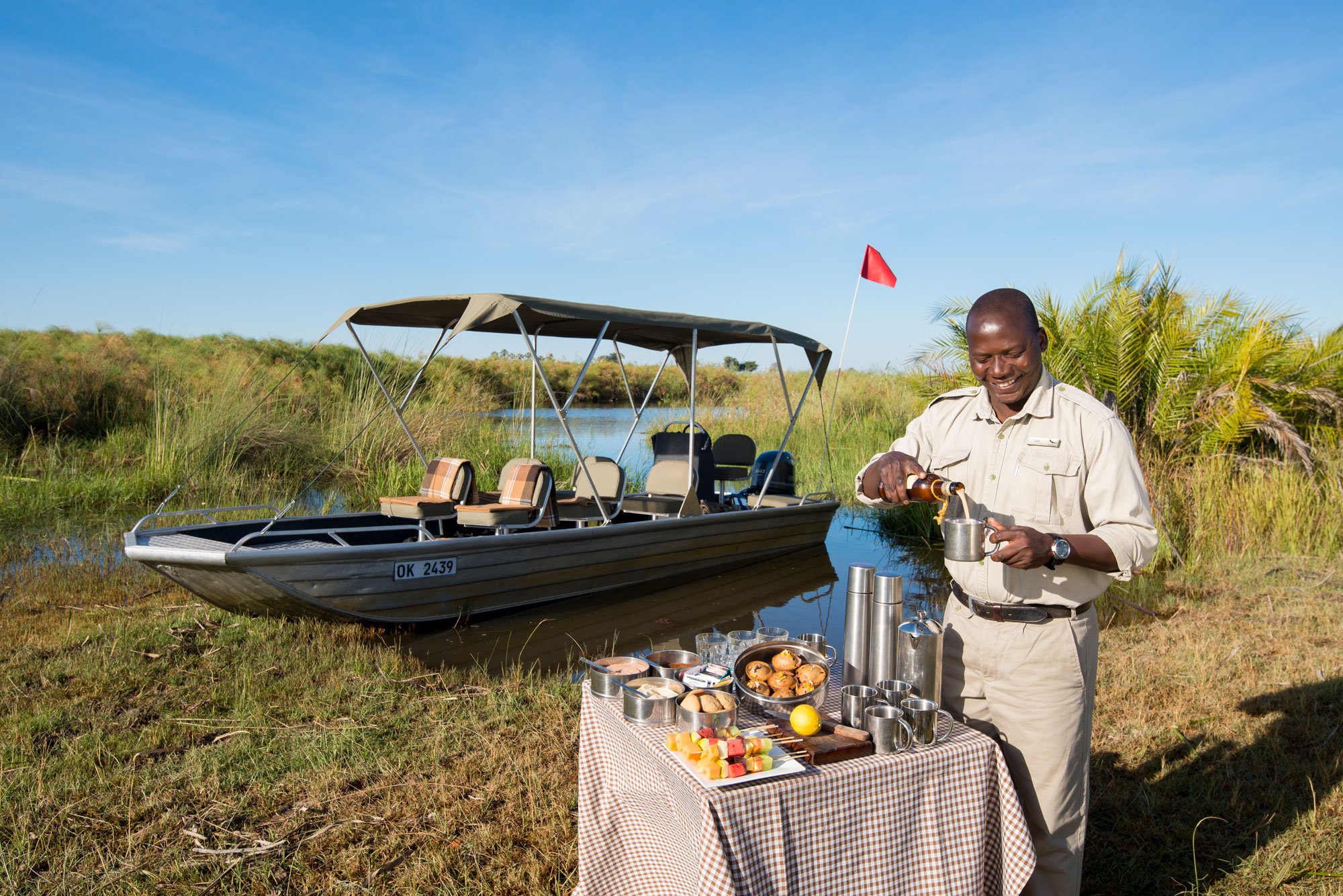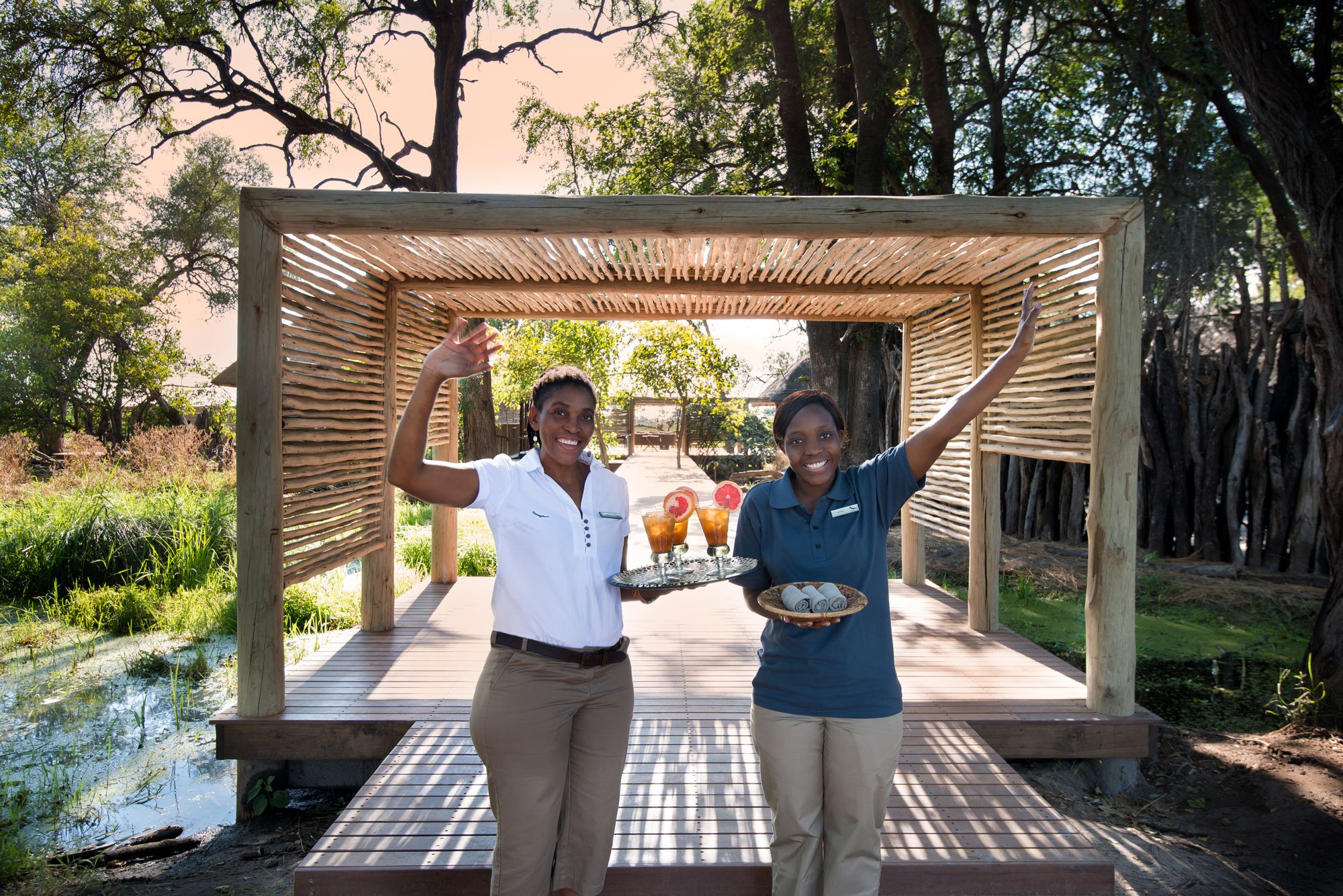A Complete Guide to Tipping on a Southern African Safari
Written by Zeldi Smulders
Your safari journey begins from the exact moment you start travelling to your wild and wonderful destination. It’s made up of all of the amazing experiences you have, from the places you stay at, to the activities you take part in. As you move from the seat of the safari vehicle to the dining room chair, you'll want to know what is expected, especially when it comes to tipping safari guides and general safari lodge tipping. Tipping etiquette can be quite the headache for some but this Southern African Safari Tipping Guide is here to help you figure it out.
Why Should You Tip?
Tipping practices depend on personal expectations and local customs. While tipping is not mandatory on an African safari, it is voluntary and highly appreciated. It's not only part of safari etiquette but also benefits local communities.
A Little Background
You may wonder why it's necessary to tip safari workers. Here's why many people choose to do so:
In Africa, many workers who live in the city or rural areas have to travel long distances, especially when it comes to remote safari areas. As is customary (and expected) for some cultures, employed family members often support unemployed relatives, so they don't keep everything they earn.
Now, shouldn't workers' salaries cover all their expenses? While safari lodges should pay fair wages, even skilled workers like park rangers may not earn much, especially if employed by the government. The fees you pay cover more than just worker salaries. They also go toward concession fees, insurance, security, entertainment, and maintenance. Sustainable lodges try to reduce costs by starting gardens or using solar power, allowing them to pay workers more.
Tip or No Tip?
It’s up to you. If you can, reward commendable service, but you should not feel obliged to leave a tip if a worker was unprofessional or did not provide adequate service. However, on your safari trip, you are likely to come across staff that are very friendly and hard-working, and who want to make sure you have a great time.
Considering this, you might not have a problem with giving a good, respectable tip in exchange for a big and grateful smile. Especially if your home country has a stronger currency, what you may consider a small amount can make a big difference for someone living in southern Africa. You can always tip from the heart and not just go along with what is expected, but the important thing to remember is to be fair.
You should tip on safaris because the staff goes above and beyond. They remember your preferences, make extra efforts to spot animals you want to see, and work long hours. They wake up early to prepare breakfast and stay up late to clean and prepare for the next day. They do many underappreciated tasks to ensure you have a fantastic and safe experience. Tipping is a way to say a big 'thank you' for their excellent service and for taking care of your needs.
Who to Tip
The safari staff at a lodge can be divided into two general groups:
Front-of-house staff like guides, trackers, drivers, waiters, and spa therapists. These workers will usually be tipped separately. You might spend some more time with them and get to know them as individuals.
Back-of-house staff like anti-poaching units, guards, cleaners, cooks, gardeners, and other maintenance workers. These are the people you might not interact with that much and they are usually tipped together as a group.
You won’t usually tip people like medical personnel, managers or owners of an establishment, or pilots when you are on a safari. But, of course, you can if they helped you a lot or did more than they had to.
Other workers that can get tipped during your trip include:
Drivers who picked you up at the airport or drove you from one destination to the next and offered you a pleasant ride.
Petrol attendants (if you are a self-driver) who may fill your tank, wash your windscreen, and check oil, water, and tyre pressure at a petrol station along the way.
Car guards (if you are a self-driver) who might assist with parking the car and keep an eye on the car while you’re gone to prevent vehicle-related crime. They might be part of a security company but they can also be self-appointed.
How Much to Tip
Tipping on a safari depends on the staff's responsibilities and skills. Safari rangers or guides might receive larger tips due to their specialised roles, while general workers, though equally important, may require different gratuities. Outstanding service deserves a bigger reward, while mediocre service may result in smaller or no tips. Consider factors like the knowledge shared, the level of involvement of your guide, and the number of drives per day. Personal preferences and budget also play a role in deciding the tip amount.
The following guide will help you determine how much to tip on safari in South Africa, Namibia and Botswana:
| Role | Average Amount |
|---|---|
| Transfer drivers | 10% of the total fare for longer drives |
| Porter | R10/N$10 (±0.50 USD) or P10 (±0.70 USD) per bag |
| General lodge staff | R50/N$50 (±2.40 USD) or P50 (±3.40 USD) per guest per day (to be shared between the general staff) |
| Safari guide | R150/N$150 (±7.30 USD) or P150 (±€10.30) per person per day for a full-day tour |
| Ranger/Tracker | R100/N$100 (±4.80 USD) or P100 (±6.80 USD) per person per day |
| Waitstaff | 10% of the total bill (if tip not included) or round up the total when at a bar |
| Car guard | R5/N$5 (±0.25 USD) or P5 (±0.35 USD) per hour (if you’re not paying for parking already) |
| Petrol attendant | R5/N$5 (±0.25 USD) or P5 (±0.35 USD) per visit to the petrol station |
| Wellness professional | 10% of the total service charge |
How to Tip
Most of the time you will find that each lodge has its own system when it comes to handling tips (keep an eye out for notes left in your room regarding tipping policies), but the following is considered typical:
A communal tip box - you will find this in the main area. These locked boxes can be marked for front-of-house staff, back-of-house staff, or staff working out on the field, like guides, rangers, and trackers.
Pros: Easy to use and specific amounts are not known by everyone.
Cons: Specific staff members who might have done an exceptional job won’t get more than the rest.
Giving money to the manager - when there’s no communal box, some people prefer handing tips to the manager before departing.
Pros: You can ask the manager to give it to someone specific if you couldn’t find that person before departing.
Cons: You won’t experience the gratitude of the staff member first-hand.
Giving cash to individual staff members - a less obvious method can be to shake the staff member’s hand and have the tip in your hand, after which they will then acknowledge it and thank you.
Pros: The specific staff member that went the extra mile will feel appreciated.
Cons: It is harder to find an opportune moment to do this discreetly and other staff members might notice if you show preference to some individuals.
Leaving cash in your room after you depart - leave the tip on a table or somewhere that’s visible to staff members. Make sure you leave a note with the tip.
Pros: You can cut out any awkward situations.
Cons: Staff may think you left the money there by accident and hand it in to the manager or notify someone so that you can come back and get it.
Adding tips to card bill - if the establishment has a card machine or credit card facilities, you can write a note indicating the tip amount you want to add to your bill.
Pros: This is useful when you don’t have cash on you or you want to tip a more generous amount.
Cons: It’s not an option for all lodges because of factors like substantial surcharges or it may just not be their preferred method.
Manage safari tipping with ease
Here are some tips you can use to simplify tipping on a safari:
Take cash with you - although South Africa and Namibia have ATMs where you can draw cash, they might not always be easy to reach at a specific time and location.
Have smaller notes - you don’t want to have to ask for change.
Keep your cash safe - use the safe in your room or ask the manager to make use of the lodge’s safe.
Don’t be fooled - check for workers in designated uniforms and make sure you know who you are tipping.
Manage a larger group’s tips - when in a group, choose someone to collect everyone’s tips and put them in an envelope. Add an optional thank you card.
Sort tips beforehand and put money in marked envelopes - you can sort it according to different days or locations, or whatever makes sense for your trip.
When and Where to Tip
You can expect to tip on the following occasions:
After an activity
At the end of the day
After your stay
Note: It’s not expected to tip after each activity or after the end of each day. Actually, it’s better to tip after your stay as the other guest might feel awkward if they see you tipping after each activity while they might have chosen a different route, and this puts people in difficult situations.
One thing you have to consider is that if you tip a total amount at the end of your safari trip, the money might be split between all the staff members. A safari is quite complex because of the many different components and roles that it is made up of. This means that regardless of their performance, the staff member will get a tip. This doesn’t sound like a bad thing, but it does forgo the opportunity to reward specific individuals. Remember, you can always ask a safari lodge manager to give you some guidance on the best times to tip.
Some services that you might not normally tip for in your home country, expect tipping across southern African safari destinations - including Namibia, Botswana, and South Africa. Take a look at your itinerary and mark the relevant spots where you may have to tip. It can look something like this:
At the airport
At your accommodation
On safari
On day tours
At filling stations
At parking lots
At restaurants and bars
Are there any differences between safari tipping in Southern African countries?
Now that you know how much to tip a safari guide in South Africa, Botswana and Namibia, what are the main differences between the different countries?
In Botswana, you can tip in USD in certain instances at lodges or to guides and this is convenient when it comes to larger tips, however, the local currency is Pula.
On a South Africa safari, the preferred currency is South African Rand.
In Namibia both Namibian Dollars (NAD) and South African Rand (ZAR) are acceptable as they have the same exchange rate.
Some safari lodges or camps may provide specific recommendations or guidelines regarding tipping. Overall, it usually comes down to the local currency and exchange rate. It's always a good idea to carry small denominations of local currency for tipping purposes as some businesses will only accept these currencies. Keep in mind that you might be charged in the countries’ local currency if you are paying your African safari tips with your credit card.
Read: The Complete Safari Guide to Namibia, What Makes an Eastern Cape Safari So Special and The Botswana Pocket Guide. Also, hop on over to our blog to check out more of our complete guides.
With the small stuff out of the way, you can go ahead and have the trip of a lifetime. Southern African safaris are not only wholesome fun but they are also astounding and unforgettable! Book your safari trip to Southern Africa with Viatu to receive expert advice every step of the way.




